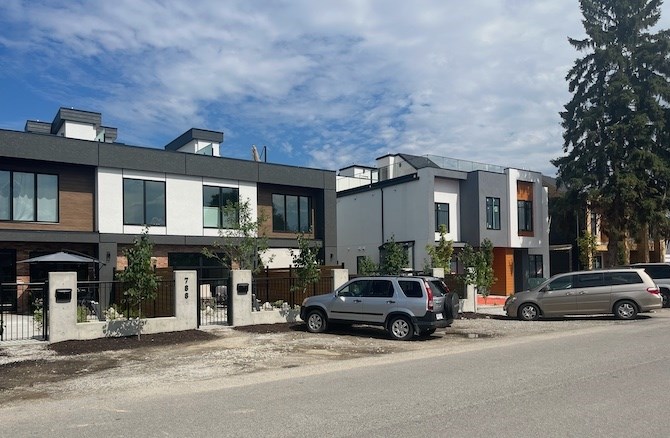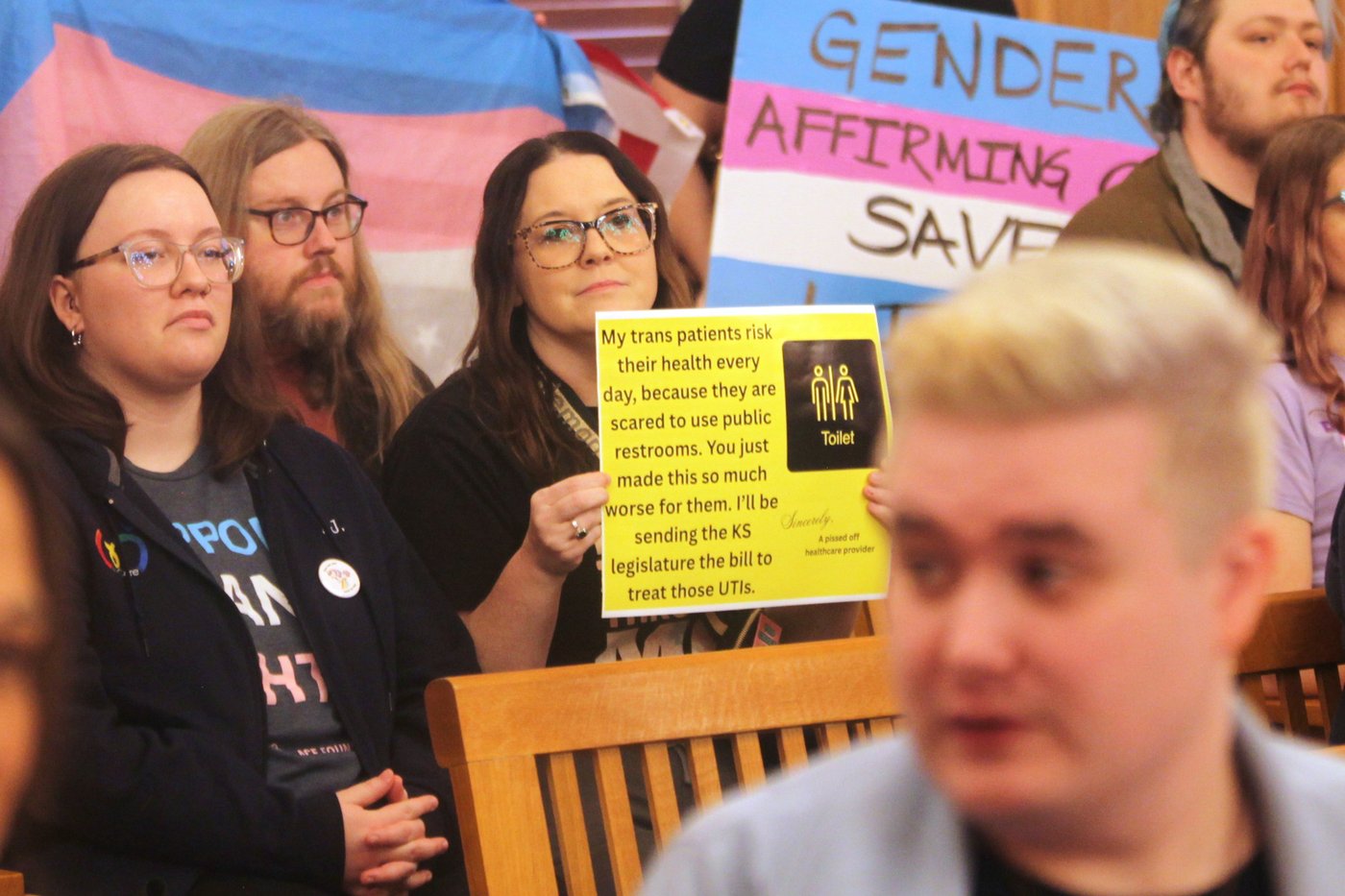Why Kamloops, Okanagan councils can’t make housing affordable

Ray Dhaliwal “will work to create more affordable housing options,” if he becomes Mayor of Kamloops.
“Create a grant system for first time home buyers to help with their costs of purchase,” Julius Bloomfield says in his campaign to become mayor of Penticton.
They're among dozens of people running for elected office in the Thompson-Okanagan and many are saying housing affordability is one of the biggest issues these communities are facing.
But it's unlikely they'll be able to change anything given the constraints of what local governments are actually able to do.
“It’s a challenging component where the market dictates both the rental side and the market real estate that’s for sale,” Kelowna Coun. Brad Sieben, who is not seeking re-election after two terms on council, told iNFOnews.ca. “It’s hard when Kelowna is one of the most desirable places to live in the world.”
Coun. Judy Sentes, who is retiring after 14 years on Penticton council, has much the same view.
“That’s a significant challenge,” she told iNFOnews.ca. “We can take an attitude of conversation with our developers and encourage that a percentage of their development will address that but it’s fraught with difficulty. What is affordable? It’s not a simple answer, for sure.”
She noted that some municipalities have land they own so they negotiate with B.C. Housing to use that for affordable or attainable housing. But, she said, Penticton just doesn’t have the land base to do that.
“If we choose to put dollars there, where does that money come from?” she asked.
Besides, that’s not fully within the power of a local government. Certainly they can negotiate but, if they had all the land in the world, nothing says B.C. Housing has to build and manage affordable or subsidized housing on that land.
That being said, it has been done in Kamloops where, outgoing Mayor Ken Christian said, the city provided land for two seniors housing projects and the Merit Place shelter.
“We stop short of running them,” he told iNFOnews.ca. “We don’t build them and we don’t run them.”
The one tool cities do have is zoning.
In recent years, some of the cities have changed zoning laws so basement suites and carriage houses can be built without going through the timely, costly and often controversial rezoning process.
Christian calls those “mortgage helpers” and Kamloops has seen a big uptake in those kinds of smaller and more affordable units.
“We have always been sensitive to infill,” Sentes said. “But how much expectation or requirement can you put on a developer? They’re not developers to be charitable. They have to make profit. But isn’t there some way that, maybe, we could create a balance between their opportunity to make a profit and our need to have affordable housing?”
In Kelowna the shift has gone away from carriage houses to the point where the city recently bumped up development fees to $25,000 from $2,500 for carriage houses.
READ MORE: Cost of building carriage houses in Kelowna may go up $20,000
That decrease in interest in carriage houses was triggered by new zoning rules in large parts of the downtown area where four-plexes are now allowed to replace single-family homes without much red tape.
Kelowna is looking to expand areas where that is allowed next year and Kamloops is looking to initiate similar zoning in select neighbourhoods early next year.
READ MORE: Four-plexes set to replace housing in Kelowna, Kamloops
“What we’re seeing in a lot of places, a guy will buy two lots, tear down two homes, and put up a multi-family fourplex, and he has to go through the rezoning,” Christian said. “You get a lot of neighbourhood anxiety about those things. They’re mainly concerned about parking but very often they’re concerned about the quality of the tenants. It just brings out the worst in people.
“This kind of development, we’ve done it for five years. We’ve approved every one of those rezoning applications. Why are we making the guy jump through an $1,800 process and slow him down for six months when it’s just going to get approved?”
There’s been hundreds of four-plexes built in Kelowna over the last few years and, according to the city’s planning manager, Ryan Smith, there has been very little opposition from the neighbours.
Kamloops has also allowed smaller lots in places like Campbell Creek where homes can be built closer to property lines, making them more affordable for first time buyers, Christian said.
Reducing the number of expensive parking spaces in multi-family buildings also cuts costs, he added.
A little more controversial are development cost charges paid on every housing unit to help pay for expansion of offsite roads, parks and sewer lines the new growth triggers.
Existing residents insist that newcomers pay for new services but it adds dramatically to the cost of building a home.
In Kelowna, a $7,000 per unit fee was added in 2020 to pay to build parks that were already funded by developers.
Those fees can add up to almost $50,000 per unit, regardless of size.
Kamloops, on the other hand, charges by the square foot so a small carriage house pays less than a 5,000-square-foot executive home.
But, can cities do more?
Over the last three years Kelowna went through a controversial redevelopment process on land it owned downtown for the RCMP building.
Sieben says the city did the right thing to at least lease the land long-term to a developer who will build a 25-storey highrise for renters.
That doesn’t mean it’s affordable as the average one-bedroom apartment rents for more than $1,800 a month in Kelowna.
There was never any public discussion about partnering with B.C. Housing to create a subsidized project instead.
Last year, the province changed the rules so public hearings are no longer required for zoning changes that fit a municipality’s official community plan. That was an effort to speed up the approval process, similar to what Christian said about the proposed four-plex pre-zoning in Kamloops.
Still, many of the mayoral hopefuls say the permitting process needs to be sped up even more.
Increasing density is also a common theme.
Other than that, they're offering few suggestions that don’t contain words like encourage, advocate or support so it seems those in the running for local office have no brilliant solutions to housing affordability in the Thompson-Okanagan region.
— This story was updated at 11:04 a.m. Sept. 27, 2022, to amend comments made by Julius Bloomfield.
To contact a reporter for this story, email Rob Munro or call 250-808-0143 or email the editor. You can also submit photos, videos or news tips to the newsroom and be entered to win a monthly prize draw.
We welcome your comments and opinions on our stories but play nice. We won't censor or delete comments unless they contain off-topic statements or links, unnecessary vulgarity, false facts, spam or obviously fake profiles. If you have any concerns about what you see in comments, email the editor in the link above.



